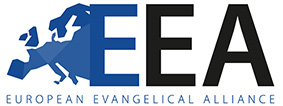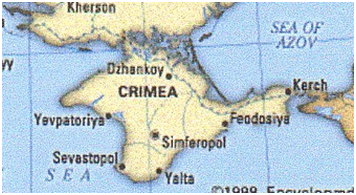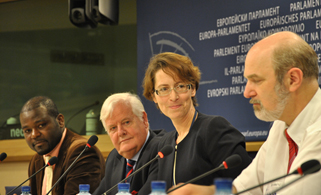EEA call to prayer and building peace concerning the Ukraine and Russia
What can Christians do as we earnestly pray and watch to see what the next chapter in the story of Russia and its relationship with its neighbours will be? We thank God that there has not been an even greater explosion of conflict, that courageous peacemakers of all kinds and from all sides have stood in the middle of the tension or knelt in city squares to pray. But let’s not underestimate the fear, hurt, sense of injustice and anger. We need to keep praying.The Impact of History
We are all a product of history which means that the West’s default position is to mistrust Russia, and vice versa. The legacy of the Cold War overshadows us. When the USSR crumbled, the Warsaw Pact also disappeared, leaving Russia feeling more vulnerable. Meanwhile, NATO gladly expanded, welcoming nations who had loathed being part of the Soviet sphere of influence. Russia’s old enemy has become stronger and crept ever closer. Our political history is different. The West champions democracy and the rule of law and has a longer experience of both. Both Russia and Ukraine had democracy thrust upon them in the 1990s and both have struggled to adapt. Democratic institutions are weak, corruption abounds, the rule of law is weak, and ordinary people suffer. But many fear the chaos that brand new democracy caused in the 1990s and loathe the thought of Western, liberal values coming, with the resulting tolerance of things like homosexuality. Meanwhile, the West likes to think it is morally superior but Russia sees inconsistencies. It would argue that the interim Ukrainian government is illegitimate but that, by being supportive, the West has chosen to suspend its love of the rule of law. Go back further and the nations of Eastern Europe were, at different times, ruled from various capital cities. These changes, plus the recent movement of people for economic reasons means that there is a mix of people living side by side but whose sense of belonging is culturally Russian, Ukrainian, Romanian, Polish, Lithuanian, Hungarian etc. For Ukraine especially, the people’s loyalties are divided. It has largely unsuccessfully tried to bridge East and West. And other nations seem to feel they have a right to interfere in its affairs. Our media is influenced by history. Where the freedom of the media is curtailed, governments are able to disseminate a biased and inflammatory account of events. But, even in countries where the media is more independent, most editors look at events through a certain prism, select and convey facts accordingly and interview people who speak from the nation’s perspective.What can Christians do?
So what can Christians do as we earnestly pray and watch to see what the next chapter in the story will be? We can try to understand the fear, hurt, anger and historical perspective that we ourselves carry and which shape our own opinion. We can ask God to help us see the bigger picture. Love of one’s nation (patriotism) is good. Revelation Chapter 21 tells us that the glory of the nations is going to be reflected in heaven. However, nationalism, where our love of country means that we cannot see our country’s faults and are happy for others to suffer, is a sin. Nationalism is Europe’s perennial sin. It stops us from being able to see the truth or to compromise. Politicians use nationalism to justify their actions and to win popularity. May Europe’s Christians be able to put their heavenly citizenship before their earthly one. Russia and its neighbours have to be able to live together in peace and mutual respect and be able to cooperate together economically. Ukraine’s people must be able to trust one another, whether they feel more Western or more Russian. Events in Crimea, the previous conflict in South Ossetia and Russian sabre rattling near Ukraine’s borders are making this necessity even harder to achieve, increasing levels of fear and hostility.Prayer points
- Please pray for those who mourn or who are terribly anxious.
- Continue to pray for courageous peacemakers and for those who can dissipate the fear.
- Pray for the Pandora ’s Box of nationalism to be shut again.
- Pray for the truth to be heard and for courageous journalists and courageous listeners.
- Pray for courageous, new politicians to emerge, including many from within the Church, who will be able to heal divisions, help everyone to feel respected and secure and strengthen the rule of law and integrity.
- Pray that Ukraine’s elections in May will be fully democratic and result in a government that will work for the good of all Ukraine’s people.







